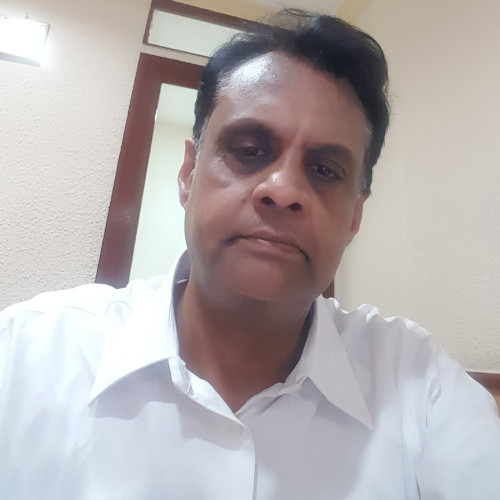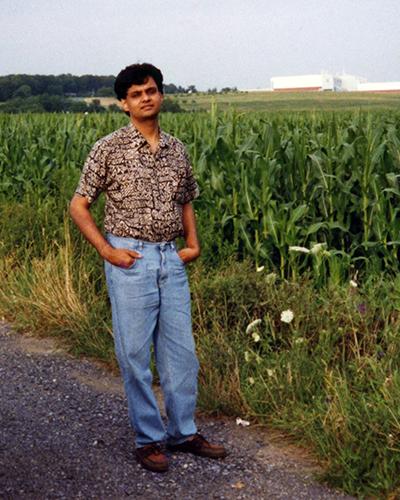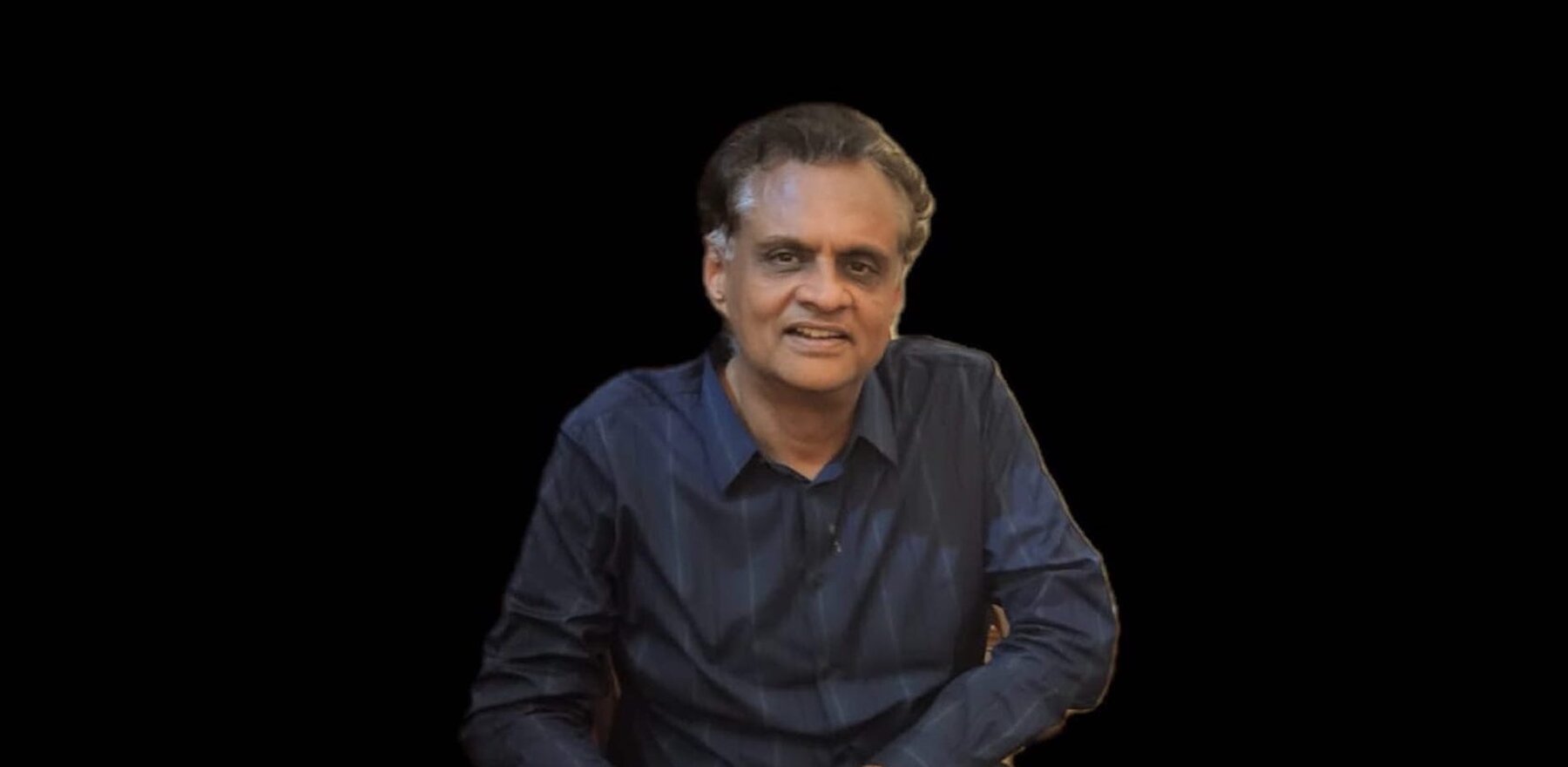Lehigh’s emphasis on entrepreneurship and industry connections paved the way for Ramesh Ananthakrishnan ‘90G to build a thriving global business
While studying production engineering as an undergraduate student in India, Ramesh Ananthakrishnan ‘90G happened to read an autobiography of Lee Iacocca, the famously innovative automobile executive and Lehigh University alumnus. He was so inspired by Iacocca and his story that Ananthakrishnan immediately knew Lehigh was where he wanted to be.
“As a young person, that really captured my imagination,” said Ananthakrishnan, who obtained his master’s degree in industrial engineering at Lehigh in 1990. “After I read that, I was convinced. I needed to go to Lehigh.”

Like Iacocca, Ananthakrishnan had an entrepreneurial spirit, which was further sparked and developed by Lehigh’s strong focus on entrepreneurship and innovation. After graduation, he returned to India in 1992 started DSM Soft, which provides products and services in the geospatial, telematics, engineering and publishing domains for private and public sector organizations globally.
Today, the company employs about 850 people, and serves government agencies and clients throughout Europe, as well as the United States, Canada, Australia, and New Zealand.
“My interest in entrepreneurship was really accelerated after I came to Lehigh, and the connections between Lehigh and a number of small- and medium-sized companies in the industrial sector,” Ananthakrishnan said. “That was a very big influence on me.”
Ananthakrishnan’s story is emblematic of Lehigh’s focus on international education, experiential learning, and fostering entrepreneurial and innovative thinking. All of these are outlined in the university’s strategic plan, Inspiring the Future Makers.
The Spirit of a Future Maker
Cheryl Matherly, Vice President and Vice Provost for International Affairs at Lehigh’s Office of International Affairs (OIA), said Lehigh is deeply committed to long-term strategic engagement with India. It is the third-largest country of origin for Lehigh international undergraduate students, and the second-largest for graduate students.
“Ramesh Ananthakrishnan truly embodies the spirit of a Future Maker,” Matherly said. “His story is a perfect illustration of Lehigh’s commitment to international education and forward-thinking entrepreneurship, reflecting the values we strive to instill in our students.”
A resident of the Chennai area, Ananthakrishnan had long wished to study in the United States. In addition to Iacocca’s memoir, he was further drawn to Lehigh while studying production engineering at what is now National Institute of Technology Tiruchirappalli.
One of the core textbooks in computer-aided manufacturing that he used there was written by Emory Zimmer and Mikell Groover, two professors at Lehigh’s Industrial Engineering department. This only fueled his already strong desire to study there.
Connections Between Industry and Education

As a Lehigh student, Ananthakrishnan received a research assistantship from the Intelligent Systems Lab, which was a part of the Manufacturing Systems Engineering Department. The research assistantship involved working with Ford Motor Company’s Electronic and Refrigeration Corporation in Lansdale, Penn., in projects involving the computer simulation of production flowlines.
After graduating in 1990, Ananthakrishnan stayed in the Lehigh Valley area for two years, working with a company associated with the CIM lab called CASI, Inc., a Ben Franklin Technology Partners (BFTP) incubator company. The engineering consulting company was owned and run by Avinash Kenkare, another Lehigh alumnus.
As part of that program he worked at the Lehigh’s Computer Integrated Manufacturing (CIM) Lab, which was founded by Zimmers and is now known as the Enterprise Systems Center. The CIM Lab engaged in research and projects in collaboration with industry, and was associated with BFTP, which is located at Lehigh’s Mountaintop campus. Ananthakrishnan worked there until August 1992.
“Lehigh had a strong interaction with industry,” says Ananthakrishnan. “Dr. Zimmers found projects with companies in the Lehigh Valley, Reading, and Philadelphia area. I got lots of exposure to industry, which wasn’t common practice in India.”
Ananthakrishnan saw an opportunity in IT outsourcing in India, so he returned there in 1992 to start his own business. The industry interaction and general entrepreneurial attitude in the United States, and at Lehigh in particular, played a major part in his business pursuits.
“I have been to other schools which are very, very research-oriented, and don’t have connections to the industry side of things,” he said. “That was not the case at Lehigh. The professional and cultural exposure I received there had a lasting impact on my approach to business and entrepreneurship.”
Giving Back to Lehigh
Ananthakrishnan has maintained contact with Lehigh in recent years, participating in alumni events and hosting Matherly and other Lehigh officials when they have visited India. He also made a gift to the university in 2020 to support experiential learning and scholarships for students from India and other countries.
“I got something from the university, so I wanted to give back,” he said. “One of Lehigh’s strategic goals is to strengthen and expand its ties with India, and I hope that is something I can help with in the future.”
With significant growth in student populations and faculty with degrees from Indian institutions, Lehigh has worked in recent years to deepen its engagement to India, with an emphasis on Indian student recruitment, academic partnerships, and research collaborations. The university hosted a “Building Futures Workshop” event with prospective students in Mumbai earlier this summer.
“We want to engage Indian students and be a high-quality partner for Indian academic institutions,” Matherly said. “The work that we do around engineering programs, health space, bioengineering and biotechnology, and our approach towards interdisciplinary and entrepreneurial education definitely seems to resonate in the Indian market.”
